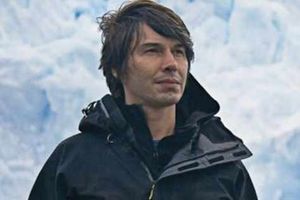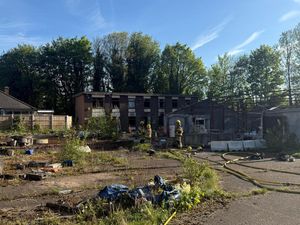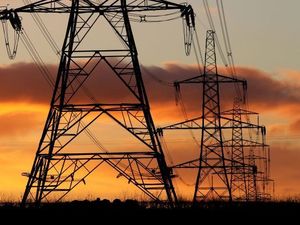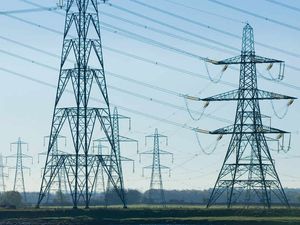Wonders of the Universe - Telly Talk
Telly Talk: A bright star shone out last night and was seen by millions of people around the country. Yes, he's certainly doing well for himself, that Professor Brian Cox.

 Telly Talk: A bright star shone out last night and was seen in the darkness by millions of people around the country. Yes, he's certainly doing well for himself, that Professor Brian Cox.
Telly Talk: A bright star shone out last night and was seen in the darkness by millions of people around the country. Yes, he's certainly doing well for himself, that Professor Brian Cox.
Sunday saw the beginning of the professor's latest jaunt around the heavens, a follow-up to the hugely popular Wonders of the Solar System.
Cox, who looks like he should be playing bass in a mid-nineties indie band, is billed as having the knack of taking hugely complex subjects and making them accessible to the ordinary man (or woman) in the street.
That seems a fair enough description. The professor's brain (massivus organus) is several times more intelligent than mine (thickus twoshortplanksus) but I think I understood what he was saying about the course of universal events and the very nature of time.
In the universe, everything is changing, and the change is irreversable, he explained while visiting Patagonia and Namibia (as you do). He went on to show us a star that exploded shortly after the universe began - like, a really long time ago - and explained how its light takes four light years to reach the earth. We are, he said, looking back towards the beginning of time.
As our heads span like a far-off planet, he went on to explain the second law of thermodynamics, the law of entropy, which governs the universe. It says that everything decays and moves from order to disorder, and that nothing stays the same. To show how this works he sat on a sand dune in some far-off former mining town now being reclaimed by the desert and built a sand castle.
The sand castle has low entropy because even a slight change to its structure will cause it to decay; but the sand around it has high entropy because you can change the position of the grains in a sand dune without changing the structure. Our universe runs in much the same way. Everything decays, be it quickly, like one of the houses in the town, or slowly, like the suns in the universe.
Got that? Yes, I think so, and then he went on to show us how our sun will eventually collapse into itself, as will all the stars in the universe, until, in trillions of years, there is nothing. Makes you wonder why we're bothering, really. Everything we do, everything we fight for, create, and love, will eventually be destroyed by the very sun that gives us life in the first place.
We've got another three weeks of this to come.
I just hope my poor, distinctly average brain can take it all in.





